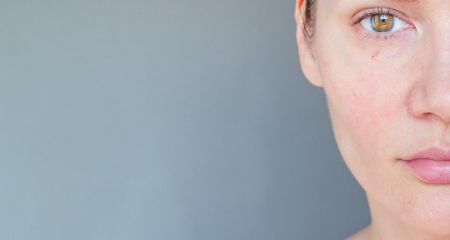
Experiencing ongoing facial redness, flushing, visible blood vessels, or acne-like breakouts? You may be dealing with rosacea. The skilled dermatologists at Northstar Dermatology specialize in assessing and treating rosacea with tailored treatment plans that effectively manage active flares and help prevent future occurrences.
Rosacea is a chronic skin condition typically involving the central face. The symptoms can vary among individuals but include the following (note: you can have more than one symptom):
People with rosacea may experience cycles of flare-ups that can last weeks to months, followed by periods of remission with few or no symptoms. Various triggers can prompt these flare-ups, such as:
The primary strategy for managing rosacea is to avoid the triggers mentioned above whenever possible. When trigger avoidance alone doesn’t suffice, additional treatment approaches include:
Gentle Skincare and Sun Protection
Using a mild cleanser, moisturizer, and sunscreen can help soothe the skin and improve its tolerance to topical treatments. It’s essential to use a broad-spectrum sunscreen (mineral sunscreens are often gentler on rosacea-prone skin than chemical ones) with SPF 30 or higher, reapplying every two hours, and to wear wide-brimmed hats and sunglasses.
Topical Medications
Several topical treatments, including creams, gels, and lotions, target specific rosacea symptoms. Anti-inflammatory agents like azelaic acid and benzoyl peroxide help with acne-like breakouts, while metronidazole (Metrocream, Metrogel) and ivermectin (Soolantra) treat both breakouts and redness. Creams containing oxymetazoline (Rhofade) or brimonidine (Mirvaso) effectively reduce flushing and persistent redness. Consistent use of sulfur-based washes can also reduce redness and irritation.
Oral Medications
Low-dose antibiotics like minocycline and doxycycline can help manage more severe inflammation and may prevent skin thickening. For cases with significant breakouts and inflammation, isotretinoin (Accutane) may be prescribed.
Laser and Surgical Treatments
Laser therapy can be highly effective in reducing visible blood vessels, controlling facial redness, and addressing skin thickening. Advanced skin thickening may also be treated with electrosurgery (hot loop) or radiofrequency procedures.